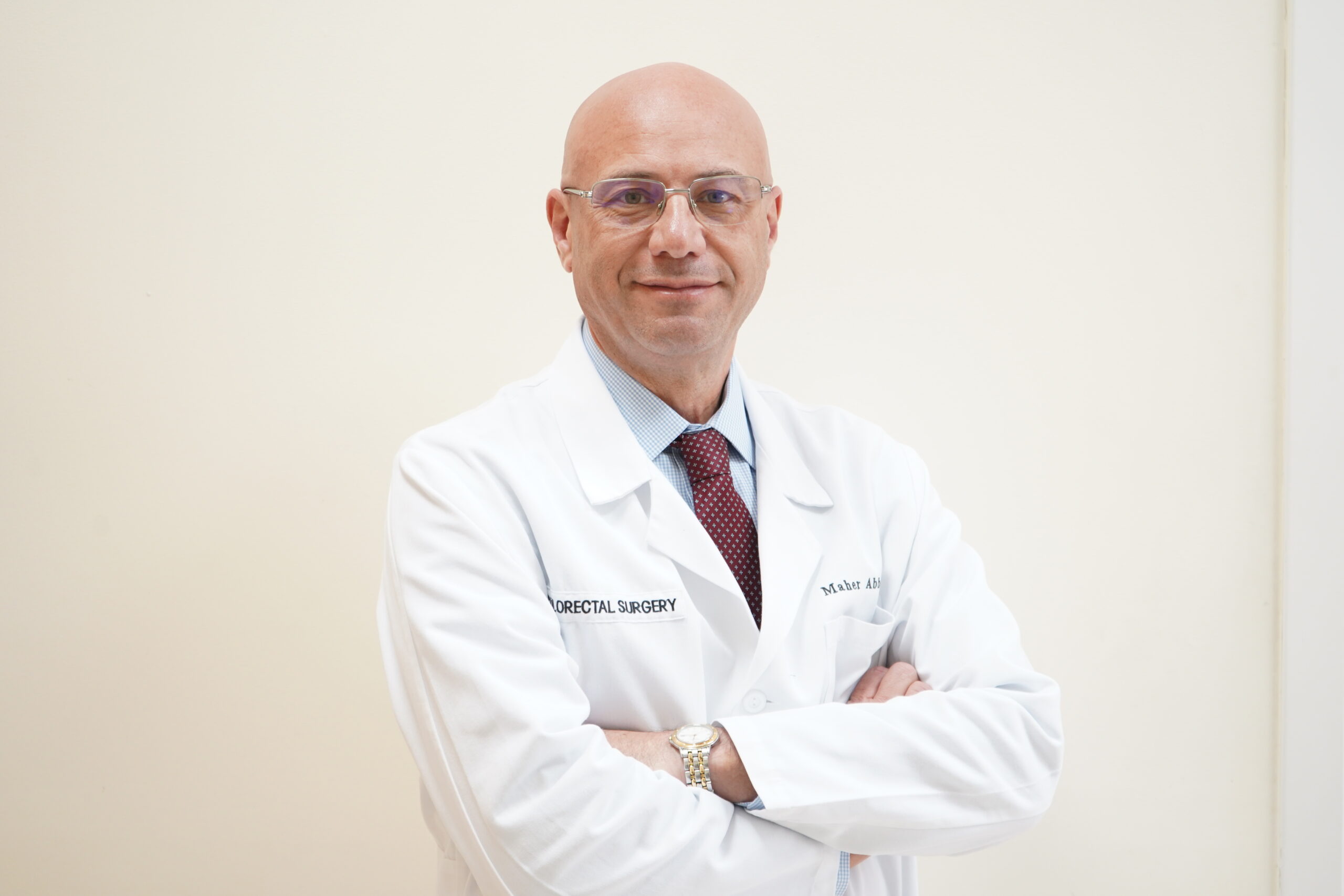What is hidradenitis suppurativa?
Hidradenitis suppurativa is a skin condition that begins as infected pimple-like bumps in areas like the buttocks, groins, and underarms. One or more areas can be affected in an individual patient. It is typically associated with inflamed and infected skin and hair glands. This condition can lead to extensive fistula tracts underneath the skin and scarring involving large areas [Figure 1]. Risk factors for this condition are obesity, diabetes, inflammatory conditions, and smoking.

Figure 1- Hidradenitis suppurativa involving both groins and lower abdomen
How is the diagnosis made?
Hidradenitis suppurativa is diagnosed on physical examination which is sufficient in the majority of patients. Imaging tests such as CT scan (Computed Tomography) or MRI (Magnetic Resonance Imaging scan) are rarely needed but can be helpful in patients with deep disease extending into the pelvis.
What are the treatment options for hidradenitis suppurativa?
Medical Treatment
Patients with hidradenitis suppurativa require prolonged courses of antibiotics. Smokers are advised to quit smoking. Wearing loose fitting clothes and maintaining local hygiene with soap and water washing are helpful. More recently, a new generation of medications called biologics have been introduced as part of the treatment. These potent medications can suppress some aspect of the immune system.
Surgical Treatment
Most patients with hidradenitis suppurativa require 1 or more surgical interventions for their condition. Surgical options include drainage of skin abscess, unroofing of tracts (laying open the tunnels underneath the skin), or excision with or without skin grafts or skin flaps. Patients with extensive disease can be challenging to treat. Hidradenitis suppurativa that involves the buttocks and anus can be problematic due to the constant bacterial contamination triggered by bowel motions.
Dr. Maher Abbas personalizes the care of his patients with hidradenitis suppurativa based on a variety of factors. It is important to note that wound healing can take time and can be challenging to manage especially in patients who are obese, have deep buttocks cleft, and/or are smokers. Postoperative wound care is as important as the surgical intervention itself.


